
"The anti-human polyclonal capture reagents are some of the most robust reagents I have used in my biophysical and biochemical studies so far. Overall, the anti-Fc reagents regardless of the host or capturing species provides a robust capturing ability with minimum cross-reactivity to other species." Full review.
Rupesh Nanjunda,Rating: 5.0
High-quality reagents are essential to ensure accuracy, sensitivity, and reproducibility - the key requirements of a reliable diagnostic test. Here we describe some of the critical considerations necessary for selecting the right detection reagent for your immunoassay.
Assay development will be governed by the sensitivity, speed, and ease of use you require, alongside access to equipment and how the test is to be administered. The most common serological tests are:
Immunoassays can detect a diverse array of molecules such as a structural motif on a virus particle or allergen, or immunoglobulins from biological fluids of hyperimmune patients, such as serum or saliva.
Assays can be set up in a variety of formats such as, direct, indirect, sandwich, and competitive. Indirect and sandwich assays are the more commonly used formats. They offer a higher level of sensitivity by way of the conjugated secondary antibody amplifying the signal from the target molecule.
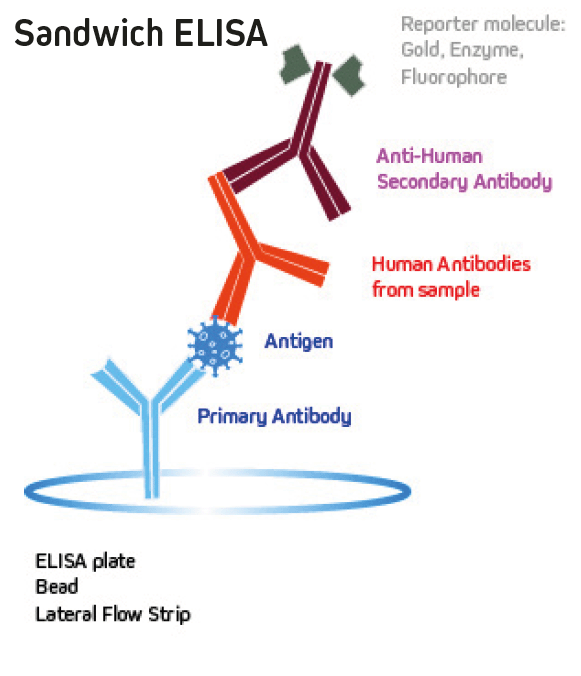
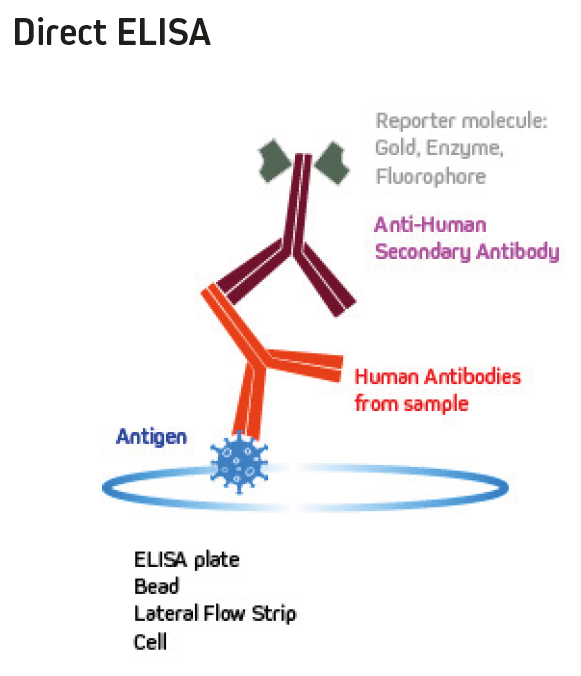
Serological tests typically do not have species to species cross-reactivity complications due to the nature of their design. Table 1 details suggested anti-human antibodies suitable for immunoassays where cross-reactivity from other species proteins will not be present.
Pan-specific antibodies allow the measurement of total Ig of two or more Ig classes. These products will not differentiate IgG, IgM, and IgA.
In immunotechniques that require antibodies from multiple species in the assay system, cross-adsorbed secondary antibodies are recommended to avoid detection of Igs that are not the intended target, minimizing non-specific signal.
Cross-adsorbed secondary antibodies are purified to prevent species cross-reactivity that occurs when Ig from one species recognizes a homologous epitope on Ig from another species. Cross-adsorption removes antibodies that happen to recognize shared epitopes on other proteins, removing the likelihood of non-specific detection.
For applications in which species cross-reactivity is not a concern, the use of cross-adsorbed antibodies is optional.
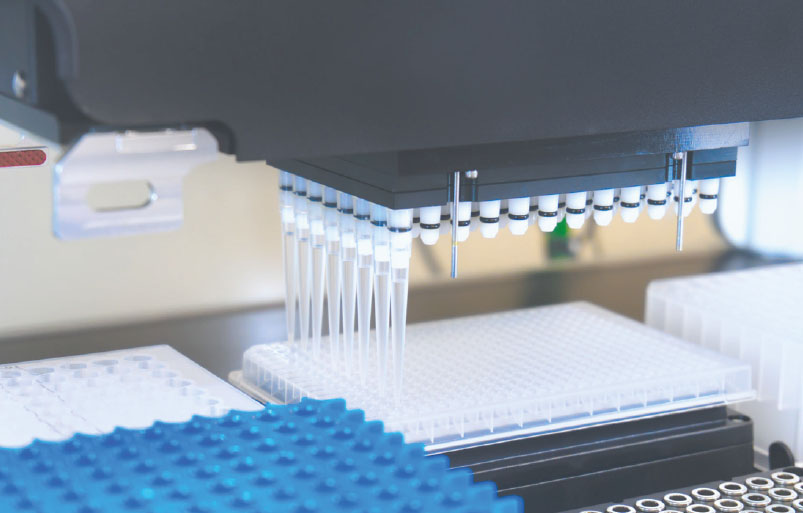
Monoclonal antibodies should be screened to identify those that perform well under assay conditions. Polyclonal antibodies are simple to produce in large quantities and can achieve greater assay sensitivity. Being a mixture of Igs, each recognizing a different epitope on the antigen simultaneously and in combination, they allow for more reporter molecules to be deposited, increasing signal.
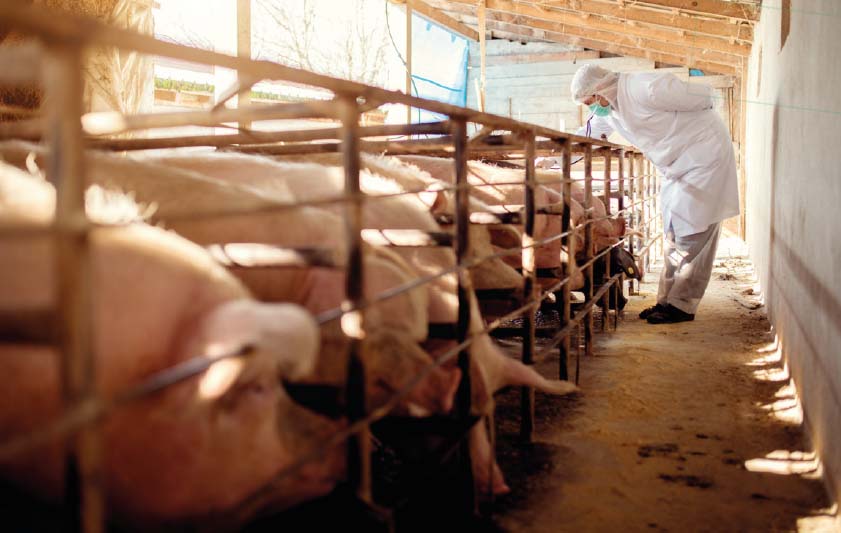
Not only do human patients need accurate and sensitive diagnostic and surveillance testing, but with zoonotic disease disrupting people's lives across the world, testing of animals will become essential. We manufacture antibodies with specificity against a wide range of other species, from farm animals such as pigs, cattle, sheep, and poultry, through to companion animals such as cats and dogs.
The most commonly used antibodies for serological tests are made in goats. Larger animals facilitate the production of greater volumes of raw material. With the increased pressures of the COVID 19 response, JIR production has increased to accommodate highly requested items related to the outbreak.
Our goal is to ensure the best products are selected for large scale assay and kit development with cost-per-assay in mind. JIR also manufactures Anti-Human Antibodies with strong affinity and avidity in mice, rabbits, alpacas, and donkeys.
We compared two popular host species, Rabbit and Goat to identify any difference in detection of human IgG, IgM, and IgA by ELISA, to demonstrate that the specificity and sensitivity of JIR Goat Anti-Human and Rabbit Anti-Human antibodies are comparable for detecting IgG, IgM or IgA.
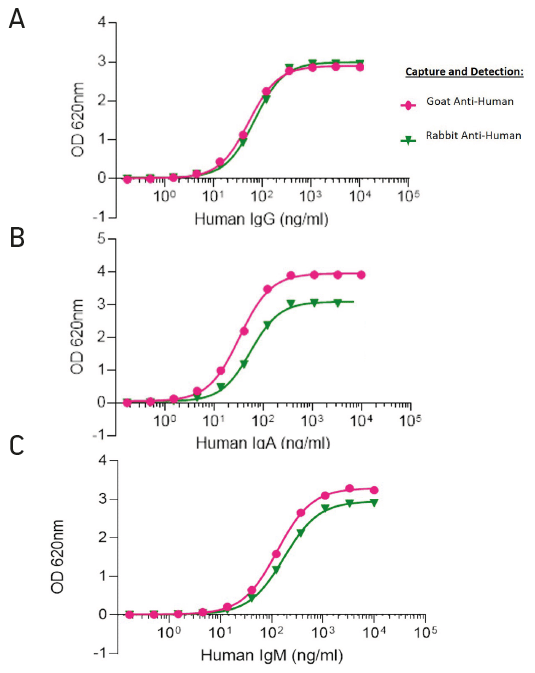
When immunoglobulin specificity needs are paramount you can trust JIR secondary antibodies to differentiate with exquisite accuracy. Figure 3 shows the specificity of JIR Anti-Human IgG (109‑035‑008) and JIR Anti-Human IgM (109‑035‑129) for their intended target Ig in the presence of other immunoglobulins.
Reporter molecules commonly used in immunoassays include colloidal gold, reporter enzymes and fluorescent dyes. Their selection depends on assay objectives and readout method.
40 nm Colloidal Gold is a popular reporter molecule for LFIAs, producing intense color and strong signals, making result readout easy. The intensity of the color generated is due to the plasmon absorbance and light scattering of the gold's electron shell (Huang & El-Sayed, 2010), and the small particles' ability to pack at high density on the test and control lines.
Jackson ImmunoResearch 40 nm gold conjugates are consistent and reliable, with the expected sensitivity of our antibodies and available in a wide range of formats and specificities perfect for assay production.
Learn More About 40nm Colloidal GoldFluorescent dyes may be used for a wide range of immunoassays including flow cytometry based tests. Fluorescein and Cyanine dyes are popular choices.
Learn More About Flow Cytometry.
Blocking using BSA or normal serum can improve result accuracy, and reduce false positives from non-specific interactions leading to background signal. Best results are obtained with diluted normal serum from the same host as the labeled antibody, used as a separate incubation step before addition of the primary antibody.
Jackson ImmunoResearch BSA is IgG-free and proteasefree. It does not contain contaminating IgG, which alleviates common immunoassay problems associated with many commercial high purity preparations of BSA.
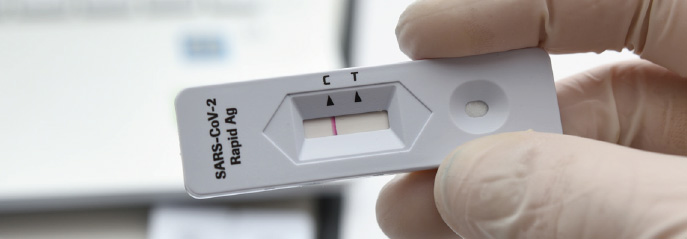
The choice of control reagents used in an Immunoassay is important. Antibodies are used to as controls to either confirm that a test was performed correctly, or to trouble shoot performance. Isotype controls are antibodies which match the host species and class of antibodies used in the experiment but are not directed against the antigen of interest. They are used as negative control to estimate the non-specific binding of an antibody and should be conjugated with the same reporter molecule as the specific antibody. ChromPure™ proteins are purified from the serum of non-immunized animals and are appropriate experimental controls
Learn More About Control ReagentsCapture antibodies directed against target molecules and the conjugated secondary antibodies used to detect them are typically raised in mammalian hosts. Control reagents run alongside these Igs in an assay must not interfere with any reagents that contribute to the test result. The inherently low reactivity of anti-mammalian IgG to chicken Igs makes IgY a particularly useful control protein. Similarly, the reduced binding of anti-chicken (IgY) antibodies to mammalian IgG reduces the chance of interaction between reagents which may cause background.
ChromPure IgY and Anti-Chicken antibodies are available in a wide range of conjugates including 40 nm Gold and FITC.
Learn More About Anti-Chicken AntibodiesSourced before August 2019
Human serum collected before August 2019 is suitable for use as negative control material in immunoassays such as ELISAs requiring naive serum obtained prior to the outbreak of Covid 19. Serum sourced before August 2019 was tested for SARS-CoV-2 Spike S1 Receptor Binding Domain (RBD) antibodies as shown in panel on right.
Learn More About Anti-Human Antibodies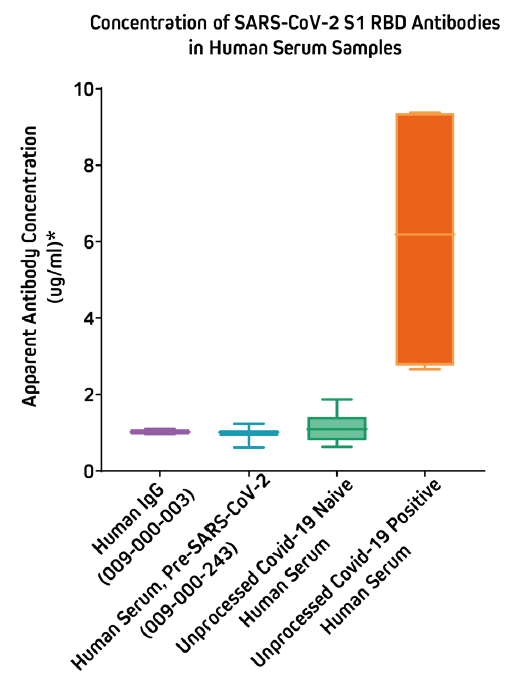
Specific for Human IgE antibodies, our new Anti-Human IgE will complement our existing Anti-Human IgG, IgM, and IgA antibodies and are our latest addition to our suite of products suitable for diagnostics research and development. They are available conjugated to a select range of reporter molecules, including Alkaline Phosphatase and Biotin enabling excellent sensitivity.
Learn More About IgE AntibodiesOver 38 years of experience in a single, highly specialized field; secondary antibody manufacture, conjugation, and supply.
Immunodiagnostics remain at the forefront of disease surveillance, prevention, and treatment. We understand the need for reliability, quality, and availability to meet the challenges of current times. We are certified to ISO 9001:2015 for the development and manufacture of immunological reagents.
The combination of our experience, focus on secondary antibodies, and commitment to the highest quality standards ensures that customers can be completely confident of product quality and consistency. Standard inventory immunoreagents can be quickly scaled up to bulk quantities, or produced to custom specifications upon request.